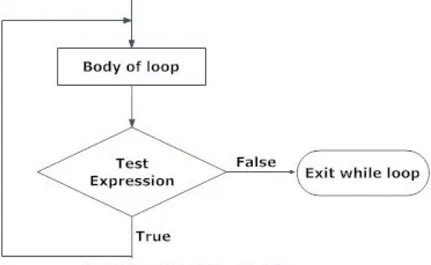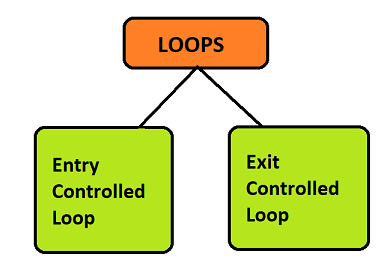
Open-Source Internship opportunity by OpenGenus for programmers. Apply now.
Reading time: 20 minutes
The iteration statements allow a set of instructions to be performed repeatedly until a certain condition is fulfilled.These are also called as loops or looping statements.These loops save the programmer from writing long lines of codes performing the same task over and over again. C provides three kinds of loops:
- for loop
- while loop
- do-while loop
All loop constructs of C repeat a set of statements as long as a specified condition remains true.This specified condition is generally referred to as a loop control. For all these loop statements , a true condition is any non zero value. A zero value indicates a false condition.
Parts of a loop
Loops consist of four major elements that govern the exexution and working of a loop:
- Initialization Expression(s) The initialization of the control variable takes place under this.
- Test Expression The expression whose truth value decides whether the loop-body will get executed or not.
- In an entry-controlled loop the test expression is evaluated before entering into a loop.
- In an exit-controlled loop the test expression is evaluated before exiting from the loop.
-
Update Expression(s) These change the value of loop variable(s).
-
The Body of the loop The statements that are executed repeatedly form the body of the loop.
The do-while loop executes at least once even when the test-expression is false initially.
Syntax:
do{
statement;
}
while(test-expression);
Order of execution:

- First we enter the loop and print/execute the statements once.
- Then the test expression is checked
- If it evaluates to true, the body of the loop is executed repeatedly, till the test expression evalutes to false
- If it evaluates to false , the loop is exited.
Example:
#include <stdio.h>
int main()
{
int i=0;
do{
printf("Hello\n");
}while(i==1);
printf("Out of loop");
}
Output:
Hello
Out of loop
while loop vs do while loop
- Syntax
while(condition){
//statements;
}
do{
//statements;
}while(condition);
- loop type
While is an entry controlled loop whereas do-while is an exit controlled loop.
- Iterations
In while loop do not occur if the condition is false whereas in do-while occur atleast once even if the condition is false.
- Example
while loop
int i=0,sum=0;
while(i<=10){
sum = sum + i;
i++;
}
do-while loop
int i=0, sum=0;
do{
sum = sum + i;
i++; }
while(i<=10);
Application
- Used whenever we want the statement inside the loop to be executed atleast once.
- Useful if you want the code to output a menu to a screen so that the menu is guaranteed to show atleast once.

